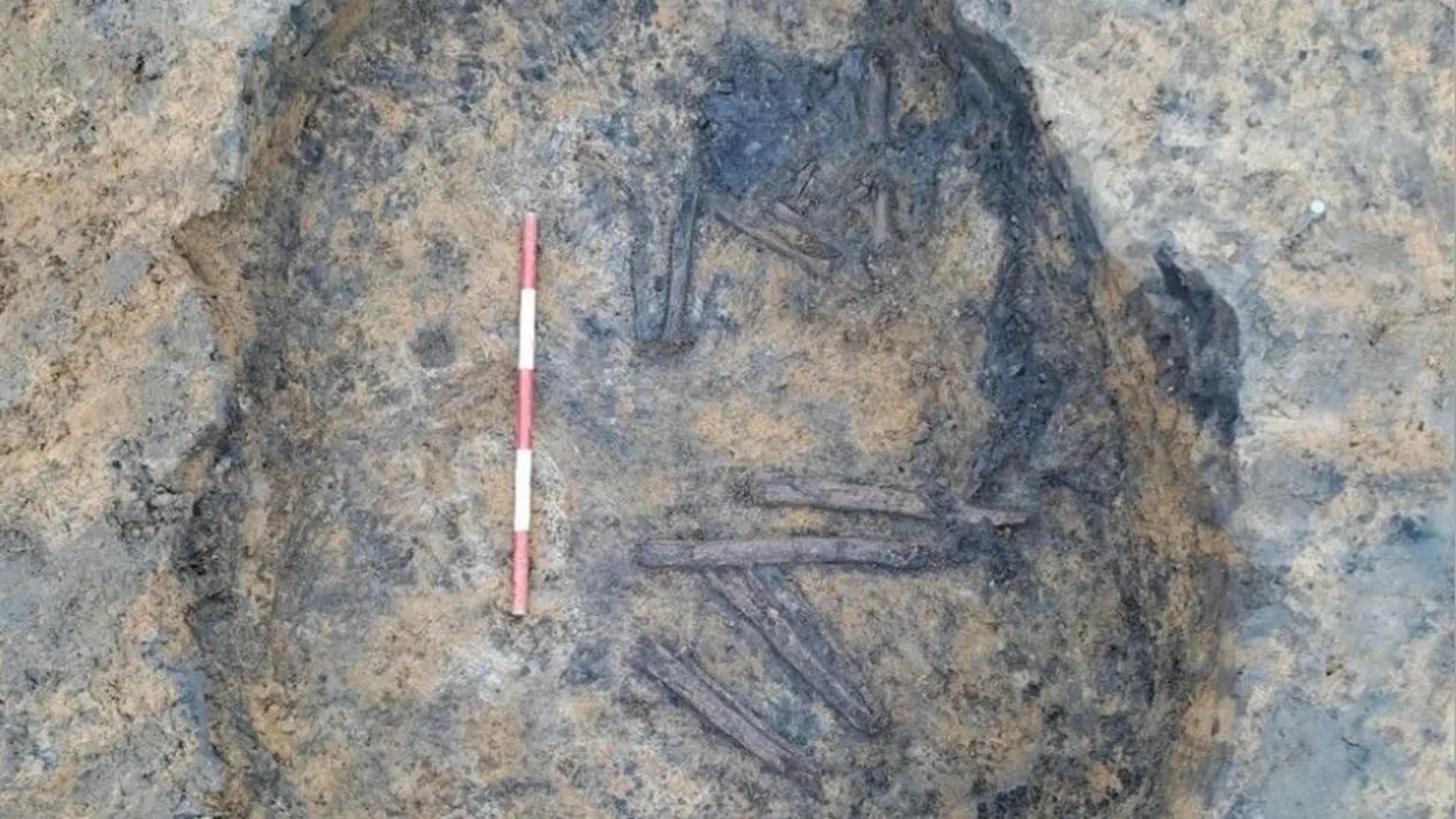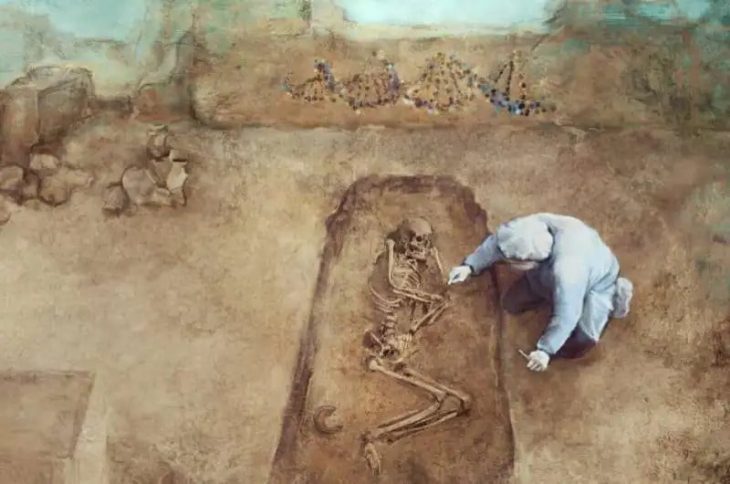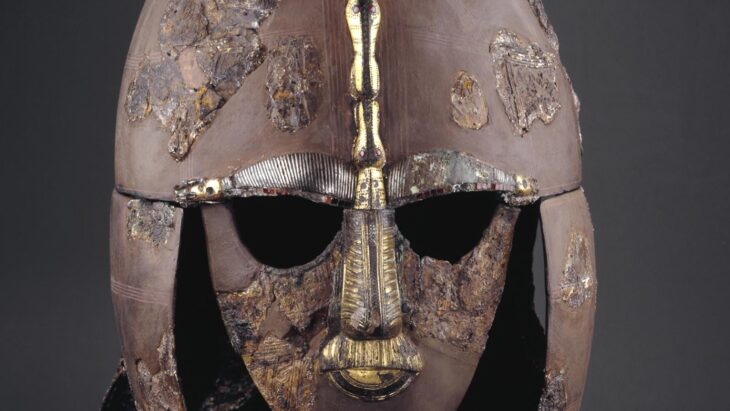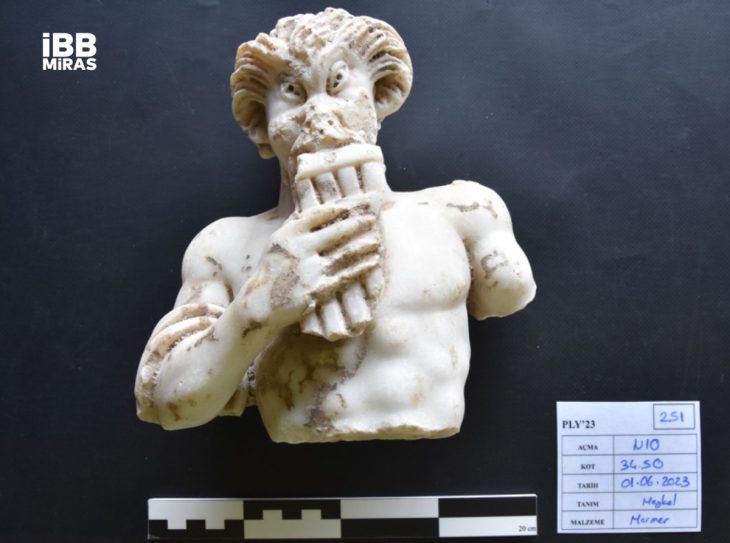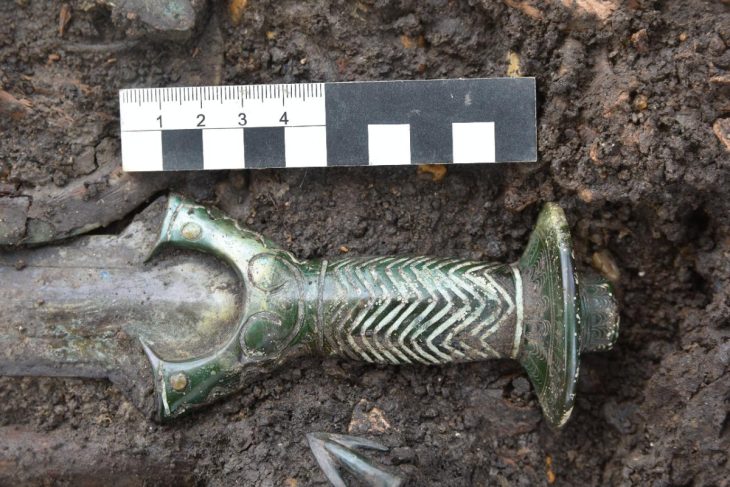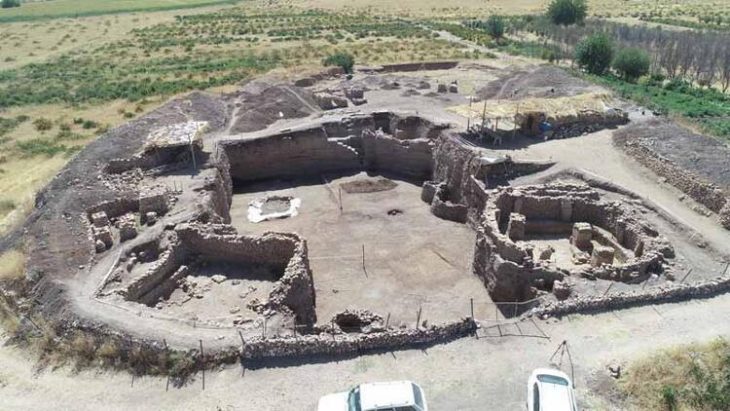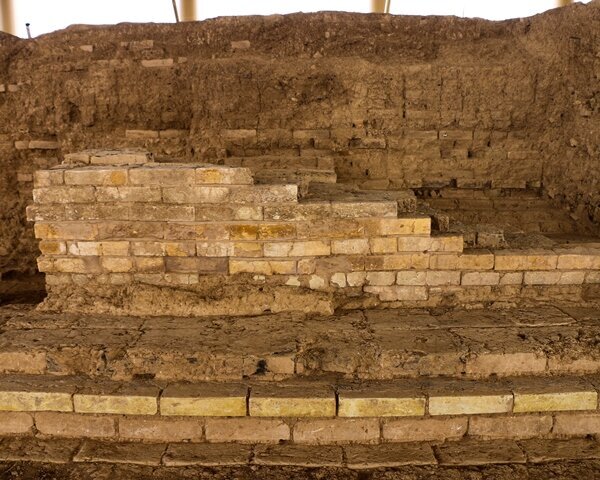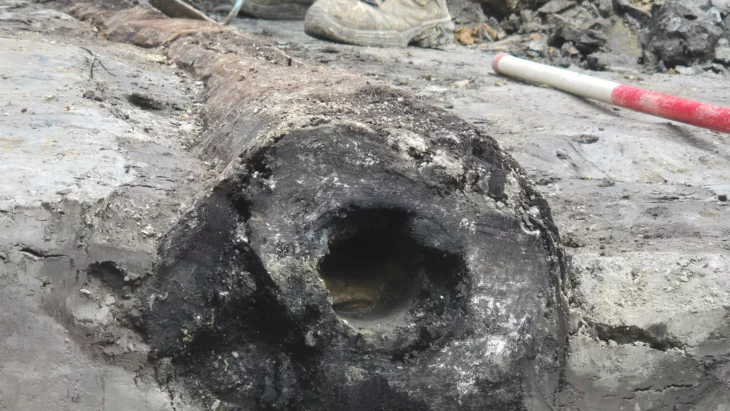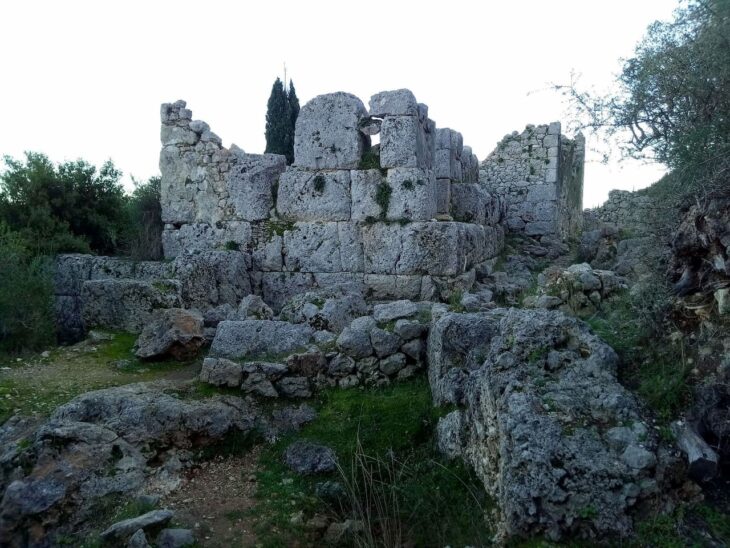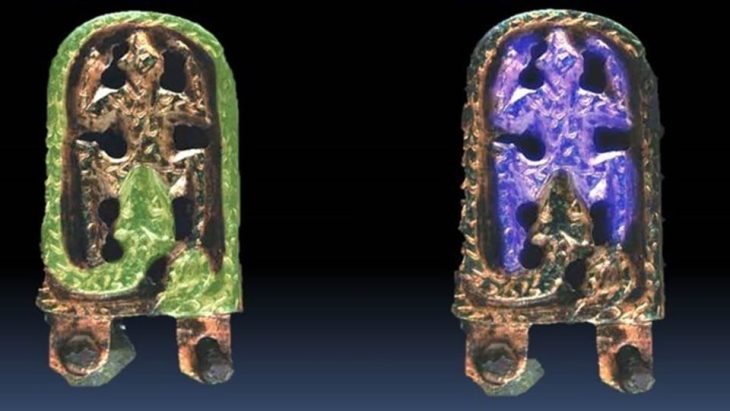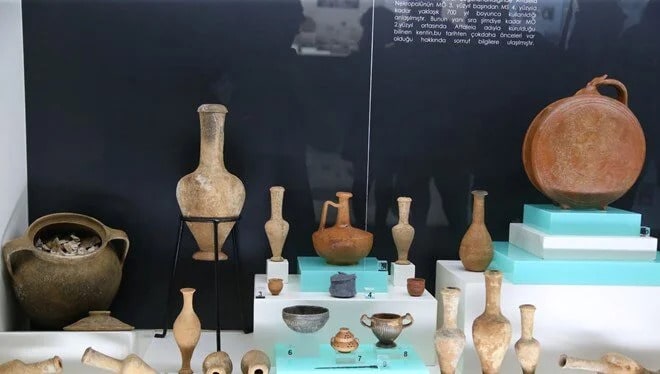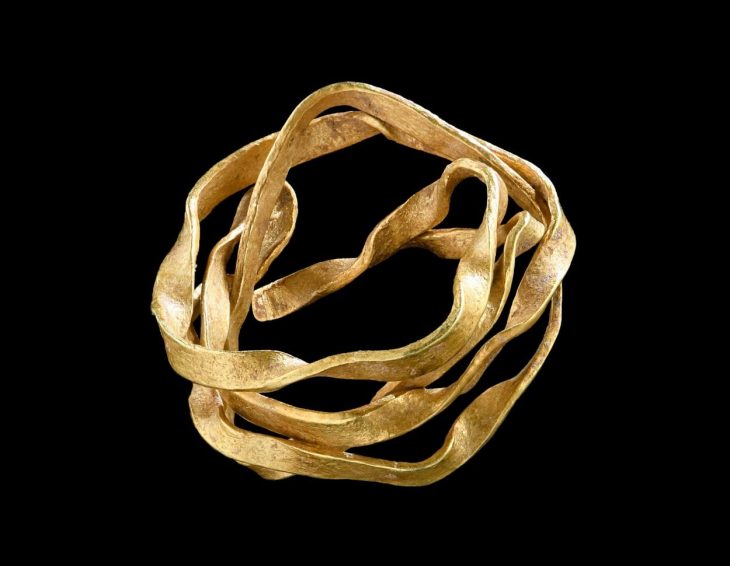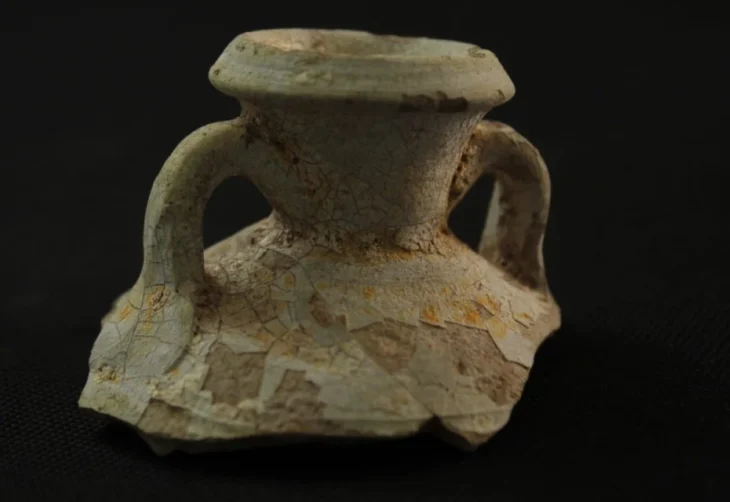Archaeologists investigating the site of a new sewer to serve a jail being built at Full Sutton in East Yorkshire, England, have discovered a burial monument containing human remains thought to be about 4,500 years old.
Parts of a Roman road and a burnt mound were also discovered during a £5m project to build a 5.2km (3.2 miles) sewer near Full Sutton.
The site of the previously unknown Roman road is close to Stamford Bridge, flanked by drainage ditches which suggested to experts that it ran northwards towards the settlement of ‘Derventio Brigantium’ – close to modern-day Malton.
The first site was a small circular burial monument discovered in the vicinity of Full Sutton. Yorkshire Water said the small, circular monument contained a buried individual who was placed in a pit in a foetal or “crouched” position.
The archaeological team said these prehistoric traditions are seen in similar monuments, or “round barrows”, found around the UK and they believe that the Full Sutton example could be approximately 4,500 years old.
Gavin Robinson, from Ecus Archaeology, which undertook the investigation, said: “It was disturbed by later ploughing, but, considering the ground conditions, the associated human remains were surprisingly well-preserved.
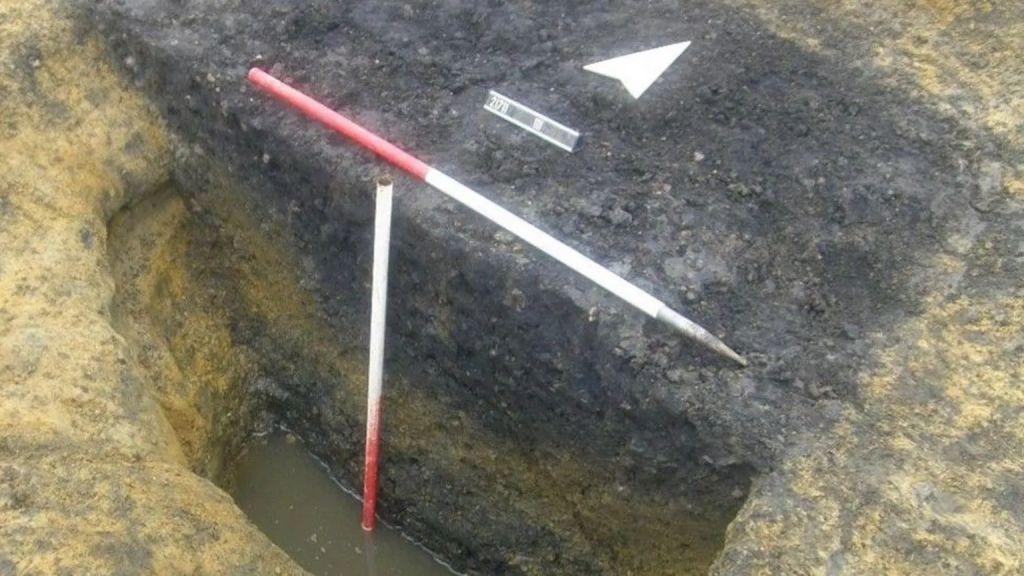
“The local sandy geology is usually too acidic for human remains to survive, however, the grave had been backfilled with a mixture of burnt stone and charcoal from the adjacent ‘burnt mound’ spread, which seems to have helped the bones survive.”
No artifacts were discovered in the grave, which was constructed close to the third find – called a burnt mound.
The monument is estimated to be either from a Late Neolithic or Bronze Age date and was covered by a dome-shaped mound of earth or stone. Remnants of the burnt mound included a small earth oven and a deep pit that appeared to have been a well. Part of the wooden lining of the well was preserved by waterlogging as well as the lower fills which archaeologists took soil samples from.
Yorkshire Water said this could provide “valuable and rare data” into what the site was used for and possible preserved remains of plants and insects.
Ecus Archaeology, working on the site for Yorkshire Water, said the three sites give a glimpse into the prehistoric and early historic past of the area.
Cover Photo: Yorkshire Water

